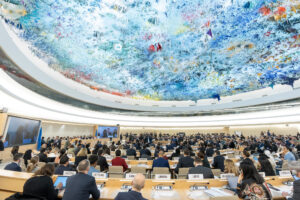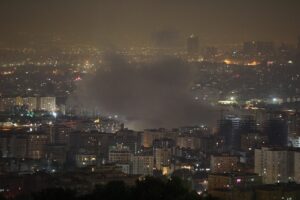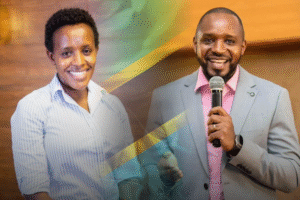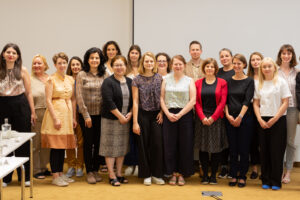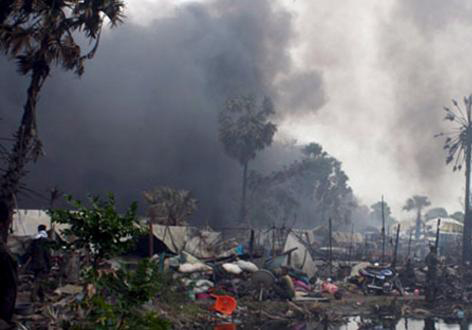
Mar 21, 2013 | News
A resolution adopted today by the UN Human Rights Council highlights the Sri Lankan Government’s ongoing failure to provide accountability for serious violations of human rights and the laws of war, the ICJ said.
“The ICJ welcomes this resolution as it underscores the international community’s continuing concern about the horrific atrocities committed by all sides to the Sri Lankan conflict,” said Alex Conte, Director of ICJ’s International Law and Protection Programmes. “The UN, as well as the Commonwealth and other international organizations interested in helping the Sri Lankan people, should now press and assist the Sri Lankan Government to show tangible implementation of their oft-repeated promises.”
Twenty-five States supported the resolution, following from a similar resolution adopted by the Council on Sri Lanka last year.
The resolution reiterates the need for the Sri Lankan Government to demonstrate tangible steps to ensure accountability for violations of human rights and the laws of war, especially during the final months of the three-decade long conflict in 2009.
In particular, the resolution calls on the Sri Lankan Government to implement the recommendations of its own Lessons Learnt and Reconciliation Commission (LLRC).
The LLRC was widely criticized by Sri Lankan civil society as well as international observers as falling short of international standards of providing accountability.
“Sri Lanka has a long history of promising justice but delivering impunity, and the LLRC is only the most recent example of that. With this resolution, the international community shows it wants to see concrete action,” Conte added. “Not only has the Sri Lankan Government not addressed the violations of the past, but there are strong indications that the rule of law has significantly deteriorated.”
The resolution notes with concern the ongoing reports of human rights violations being committed with impunity in Sri Lanka, including enforced disappearances, extrajudicial killings and torture.
In October 2012, the ICJ released a 150-page report Authority without Accountability: The Crisis of Impunity in Sri Lanka, documenting the systematic erosion of accountability mechanisms in Sri Lanka.
In recent months, Sri Lanka’s Government has stepped up its assaults on the independent functioning of the judiciary. In particular, the country’s Chief Justice was removed from office after she had challenged the legality of Government efforts to consolidate authority. The heavily politicized impeachment process was declared unconstitutional by the Supreme Court of Sri Lanka and was inconsistent with international human rights law and standards.
“In light of this resolution and the situation in Sri Lanka, the Commonwealth should change its plans to hold the 2013 Commonwealth Heads of Government Meeting in Colombo,” said Conte. “Sri Lanka has demonstrated its rejection of the Commonwealth Principles, notably democracy, the independence of the judiciary and human rights. This will no doubt be further confirmed when the High Commissioner for Human Rights presents her oral update to the Human Rights Council in September this year, just two months ahead of the scheduled Heads of Government Meeting.”
The ICJ has urged the Commonwealth Ministerial Action Group (CMAG), which meets next month, to address the human rights situation in Sri Lanka with the objective of removing its right to host the Heads of Government Meeting.
CONTACT:
Sam Zarifi, ICJ Asia-Pacific Regional Director, (Bangkok); t:+66(0) 807819002; email: sam.zarifi(at)icj.org
Sheila Varadan, ICJ Legal Advisor, South Asia Programme (Bangkok); t: +66 857200723; email: sheila.varadan(at)icj.org
NOTES:
- The resolution of the Council was adopted by 25 votes in favor, 13 against and 8 abstentions (with Congo, Ecuador, Indonesia, Kuweit, Maldives, Mauritania, Pakistan, Philippines, Qatar, Thailand, Uganda, United Arab Emirates and Venezuela voting against; and Angola, Botswana, Burkina Faso, Ethiopia, Japan, Kazakhstan, Kenya, Malaysia abstaining)
- The resolution was led by the United States of America and co-sponsored by Austria, Canada, Estonia, Germany, Ireland, Italy, Montenegro, Poland, Romania, Spain, and Switzerland; as well as by the following non-member States of the Council: Belgium, Bulgaria, Croatia, Denmark, Finland, France, Georgia, Greece, Hungary, Iceland, Liechtenstein, Lithuania, Malta, Monaco, Norway, Portugal, Saint Kitss and Nevis, Slovakia, Slovenia, Sweden and the United Kingdom of Great Britain and Northern Ireland.
- In January 2012, Chief Justice Dr Shirani Bandaranayake was removed in an impeachment process that violated international standards of due process and was declared unconstitutional by the Supreme Court. The impeachment was widely condemned internationally. The ICJ issued a letter supported by fifty-six senior jurists from over thirty countries worldwide.
RELATED ARTICLES:
Open letter: Sri Lanka should not host the 2013 Commonwealth Heads of Government Meeting
ICJ calls for International Commission of Inquiry on accountability in Sri Lanka
The International Commission of Jurists welcomes key Human Rights Council resolution on Sri Lanka
Sri Lanka: judges around the world condemn impeachment of Chief Justice Dr Shirani Bandaranayake
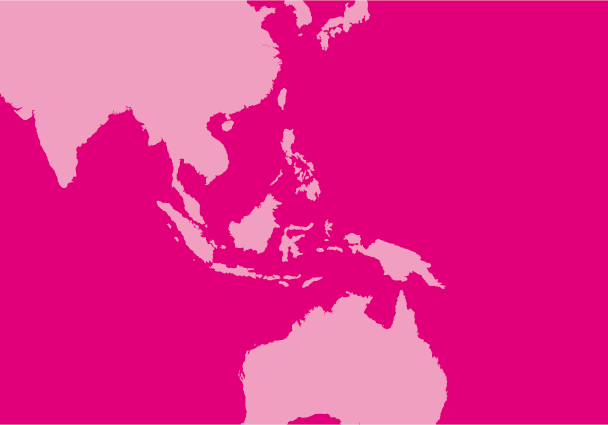
Mar 15, 2013 | Advocacy, Non-legal submissions
The ICJ today called on the Government of Sri Lanka to reconsider its rejection of key UPR recommendations on accountability and judicial independence and integrity.
In an Interactive Dialogue to consider the adoption of the outcome document on the Universal Periodic Review of Sri Lanka, the ICJ pointed to the urgent need for the Government to fully implement its legal obligations and commitment to initiate credible and independent actions to ensure justice, equity, accountability and reconciliation. Also pointing to the impeachment of the Chief Justice of Sri Lanka and attacks against the judiciary, the ICJ urged the Government to accept recommendations to strengthen and ensure judicial independence and the integrity of the judiciary.
The statement was made during the Human Rights Council’s 22nd regular session (25 February to 22 March 2013) under Item 6 (Universal Periodic Review), following the review of Sri Lanka in by the Council’s Working Group on the UPR.
SriLanka-HRC22-Item6-UPRSriLanka-NonLegalSubmission-2013 (download full statement in PDF)
SriLanka-UPR-StakeholderSubmission-LegalSubmission-2012 (go to webpage on the ICJ’s submission on the UPR of Sri Lanka)
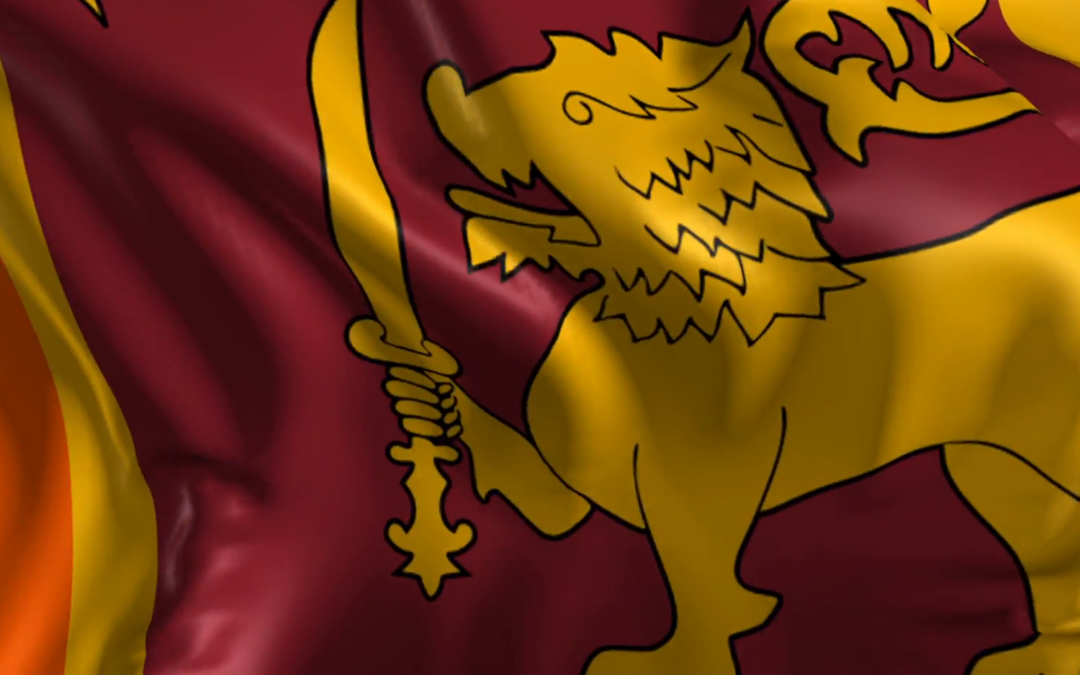
Jan 15, 2013 | News
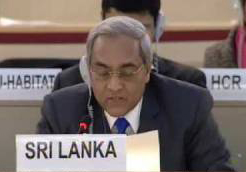 The appointment of former Attorney General Mohan Peiris (photo) as Sri Lanka’s new Chief Justice raises serious concerns about the future of the Rule of Law and accountability in the country, the ICJ said today.
The appointment of former Attorney General Mohan Peiris (photo) as Sri Lanka’s new Chief Justice raises serious concerns about the future of the Rule of Law and accountability in the country, the ICJ said today.
Mohan Peiris has served in a variety of high-level legal posts in the past decade, always playing a key role in defending the conduct of the Sri Lankan government.
He served as Sri Lanka’s Attorney-General from 2009 to 2011. Since then he has served as the legal adviser to President Mahinda Rajapakse and the Cabinet.
“During his tenure as Attorney-General and the government’s top legal advisor Mohan Peiris consistently blocked efforts to hold the government responsible for serious human rights violations and disregarded international law and standards,” said Sam Zarifi, ICJ’s Asia director.
“Mohan Peiris’ appointment as the new Chief Justice, after a politically compromised and procedurally flawed impeachment, adds serious insult to the gross injury already inflicted on Sri Lanka’s long suffering judiciary.”
The International Commission of Jurists, in its recent report on impunity in Sri Lanka, highlighted Mohan Peiris’ lack independence as Attorney-General, noting the alarming number of cases involving prominent politicians that were withdrawn during his tenure.
In November 2011, as Attorney General, Peiris told the UN Committee Against Torture in Geneva that political cartoonist Prageeth Ekneligoda, believed to have been subjected to enforced disappearance in January 2010, had actually left Sri Lanka. In June 2012, Peiris admitted to a court in Colombo that this claim was groundless.
“ICJ condemns this appointment as a further assault on the independence of the judiciary and calls on the Sri Lankan government to reinstate Chief Justice Shirani Bandaranayake. If there are grounds for questioning the Chief Justice’s actions, they should be pursued following due process and a proper impeachment process.”
CONTACT:
Sam Zarifi, ICJ Asia-Pacific Regional Director, Bangkok, t:+66 807819002; email: sam.zarifi(at)icj.org
Sheila Varadan, ICJ Legal Advisor, South Asia Programme, Bangkok, t: +66 857200723; email: sheila.varadan(at)icj.org
NOTE:
In a statement today (see below), Justice Bandarayanake strongly denied all the charges against her and asserted her status as the legal Chief Justice of Sri Lanka’s supreme court. She said: “The accusations leveled against me are blatant lies. I am totally innocent of all charges…Since it now appears that there might be violence if I remain in my official residence or my chambers I am compelled to move…”
Sri Lanka-CJ final speech-2012 (full statement, in pdf)
Read also:
ICJ condemns impeachment of Sri Lanka’s Chief Justice
Sri Lanka’s Parliament should reject motion to impeach Chief Justice
Impeachment of Sri Lankan Chief Justice: Government must adhere to international standards of due process
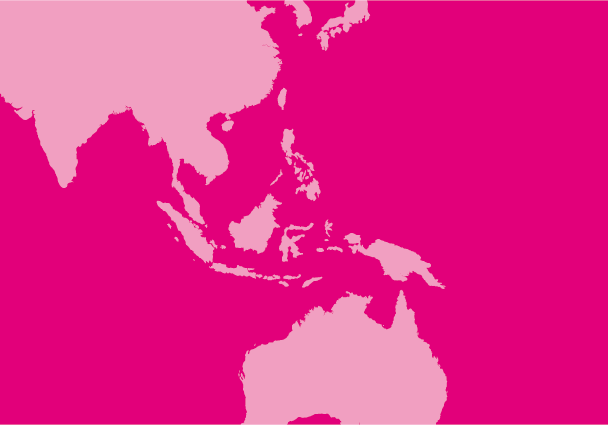
Jan 11, 2013 | News
The ICJ condemned the decision of Sri Lanka’s parliament today to impeach the country’s Chief Justice, Shirani Bandaranayake (photo).
“Parliament’s impeachment motion has defied the rulings of the country’s Supreme Court and Court of Appeal, and thus thrown into chaos the entire system of checks and balances in the country,” said Sam Zarifi, ICJ’s Asia-Pacific director.
“Sri Lanka’s parliament and executive have effectively decapitated the country’s judiciary in pursuit of short term political gain. As an immediate matter, this has precipitated a legal and constitutional crisis of unprecedented dimensions; but just as worrying are the consequences of this action, which severely erodes accountability and the rule of law in a country already suffering from decades of impunity.”
The impeachment decision now goes to President Mahinda Rajapakse, who precipitated this crisis initially. Under Article 107 of the 1978 Constitution of Sri Lanka, a Chief Justice can only be removed by an order of the President after a motion supporting the removal is passed by a simple majority of Parliamentarians.
The impeachment process against Chief Justice Shirani Bandaranayake has been widely criticized for ignoring international standards and practice. On 6 December 2012, the Chief Justice and her team of lawyers walked out of the impeachment hearing in protest over the denial of a fair hearing. On 1 January 2013, the Supreme Court ruled that the impeachment procedure in Parliament was not constitutionally valid, finding that such procedures could only be established ‘by law’ enacted by Parliament.
The Bar Association of Sri Lanka has publically vowed that it will not welcome a new Chief Justice and the Lawyers Collective has called on the Supreme Court and the superior judiciary to not recognize the newly appointed Chief Justice.
“President Rajapakse should refuse to appoint a new Chief Justice, and instead call on Parliament to enact a new law – through a transparent and democratic process – to govern the impeachment process. Any such law must comport with international standards on judicial independence and guarantees of due process and fair trial,” Zarifi added.
CONTACT:
Sam Zarifi, ICJ Asia-Pacific Regional Director, Bangkok. t:+66 807819002; email: sam.zarifi(at)icj.org
Sheila Varadan, ICJ Legal Advisor, South Asia Programme, Bangkok. t: +66 857200723; email: sheila.varadan(at)icj.org
See also previous ICJ press releases:
Sri Lanka’s Parliament should reject motion to impeach Chief Justice
Impeachment of Sri Lankan Chief Justice: Government must adhere to international standards of due process
Sri Lanka: new ICJ report documents ‘Crisis of Impunity’
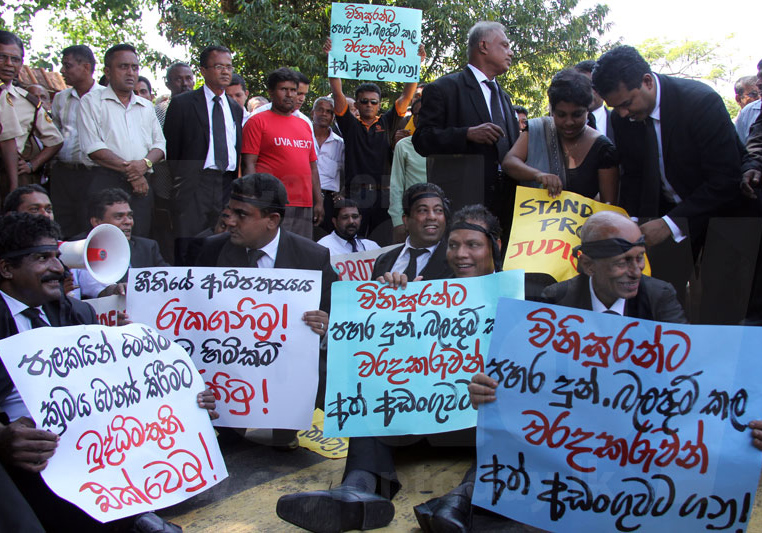
Jan 10, 2013 | News
Like the ICJ, the Bar Association of Sri Lanka (BASL) issued a statement strongly condemning the impeachment of Chief Justice Bandaranayake.
The BASL called on its members to refrain from attending Court or engaging in any professional duties on 10 and 11 January 2013 in protest of Parliament’s decision to move forward with the impeachment process. The statement is reproduced below:
The Bar Association of Sri Lanka strongly, unequivocally and with no reservations whatsoever condemns the decision to take up for debate the impeachment motion against her Ladyship the Chief Justice Dr. Shirani A. Bandaranayake based on the findings of the Parliamentary Select Committee which was quashed by the Court of Appeal and determined to be unlawful by the Supreme Court. The Bar Association has decided to call for all its members (in 78 Branch Associations) to refrain from attending to any Professional duty in protest on the 10th and 11th of January 2013 to express our deplorable condemnation.
The Bar Association of Sri Lanka further urges H. E. the President of the Republic, Hon. Speaker and the leaders of all political parties representing the Parliament to honour and respect the determination of the Supreme Court which in terms of the Constitution of our country is vested with the sole and the exclusive jurisdiction as regards to Constitutional Interpretation and Determinations.
The Bar Association of Sri Lanka is seriously concerned about the negative and eroding impact that any action of the legislative and executive organs of the government to disrespect and dishonour such determination would have on the Rule of Law in this Country.
Sanjaya Gamag
Secretary
Bar Association of Sri Lanka
On 10 November 2012, the BASL held a Special General Meeting and passed a resolution expressing ‘grave concern about the impeachment and the independence of the Judiciary’ urging the President and Speaker of Parliament to ‘reconsider’ the impeachment or alternatively to adopt a transparent and accountable procedure.
On 15 December 2012, the BASL passed a further three resolutions calling on the President of Sri Lanka to again reconsider the impeachment or alternatively enact a procedure for impeachment which guaranteed the right to a fair trial. The BASL warned that if the rule of law or fair trial rights were not observed in the impeachment process, the Sri Lankan Bar would not welcome a new Chief Justice.
On the same issue: Sri Lanka’s Parliament should reject motion to impeach Chief Justice







